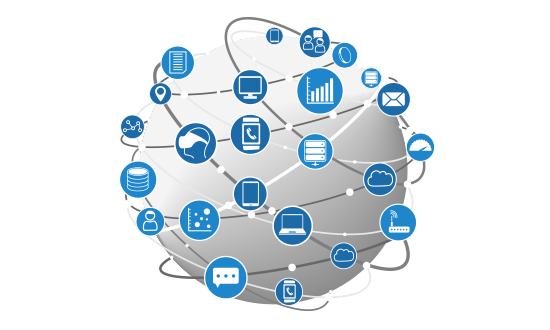The world is in the grip of a reskilling crisis. According to the World Economic Forum, over 54 percent of people will need to reskill and upskill themselves in the next three years.
Technological advancements are changing the way people work.
As the world of work evolves, so does the role of the human resource department. Their responsibilities will no longer be revolving around just hiring and dismissal. HRs are required to step up their game and excel at planning activities such as training, acquisition, and retention strategies for their organization. This is where Big Data comes into play.
Role of Big Data in HR
Big Data is all about the 4V’s and currently, a fifth has been added. All the V’s stand for:
- Volume
- Velocity
- Verity
- Versatility
- Value
Every day, the average talent management and human resource department generate a massive amount of data such as:
- Data from recruitment,
- Career progression data,
- Training data,
- Data from employee absenteeism,
- Performance of individuals,
- Competency of profiles in the org. and more.
HR departments are a veritable goldmine of ‘people data’ for businesses. According to the Economic Intelligence Unit, more than 82 percent of organizations plan to start or increase their use of Big Data in HR in 2018. (And the figures have risen dramatically since 2020.)
Data will be utilized by intelligent organizations and talent management professionals in order to drive their operations and decisions will be informed through data.
Four Big Data Applications in Human Resources
- Reduce the costs associated with a poor hire
A poor hire has a great impact on HR and the organization. The efforts by the HR for recruiting and onboarding a new joiner, training or walkthrough session by the team in which the new joiner is to be a part, and last but not the least the costs to find their replacements and the effect on operations all turn out for nothing. In other words, they are annulled.
Big Data can assist the HRs to reduce the poor hires and also the costs involved with it.
HR managers are resorting to data analytics for the selection of the right candidates. Data is being utilized to match the organization’s and teams’ requirements with that of the candidates.
The world is becoming competitive and talent managers have to make the right decisions while recruiting and enhancing their efforts.
- Increase your company’s employee retention rate
Retaining staff in an organization for a long period is more beneficial than recruiting new staff regularly. This can be achieved by developing the appropriate training modules, and timely skills evaluation checks by the HR managers.
Big data analytics can assist HR departments in making the best use of their hires by retaining them for an extended period and assisting organizations in reinventing their staff to meet changing needs.
This will also allow HR professionals to capitalize on the benefits of internal mobility.
Big Data can also assist HRs in identifying the following regarding employees:
- Potential walk out employees
- Employees in need of further training
- Employees capable of being transferred to other departments
Additionally, make it simple for talent managers to take the right action. They can find deserving employees and retain them by providing challenging roles or other incentives.
- Forecast the employees’ performance before their hiring
Big Data allows HR professionals to forecast the performance of an employee even before they are recruited and this could not have been possible without Big Data.
This can be achieved by deciding if the proposed hire would gel with the organization’s culture and provide adequate results.
Manually comparing a person’s characteristics and work performance with the organization’s top performers is not an easy process and in most cases, a gut decision is made. However, analytics eliminates such vagueness and the profile of the top performers of the organization is used to scan the suitable profiles and identify the right choice.
Many platforms already use this model to provide freelancing assistance to businesses with their assignments. Big data can provide you with strong and nearly accurate predictions. HR professionals can use this information for a variety of purposes, including evaluating layoffs, promotions, and optimizing recruitment across all profiles in a company.
- Offering enhanced targeted-benefit packages
Incentives play a major role in retaining employees in an organization. This has been proved with the help of surveys. However, many human resource departments are unaware of the value of providing additional benefits to employees.
Big Data can assist them in gathering information about their employees and prospective candidates, allowing them to plan more targeted extra benefits for them. This can be a great way to attract and retain employees.
- Combat data-related legal and ethical risks
Data privacy is one of the major concerns encountered by large organizations in terms of both legal and ethical points of view. This can be addressed by Big Data since it is enhanced and legalized in such areas. HR managers must increase their efforts to ensure data privacy from the start. Concerns about the misuse of information provided by the public and even employers are growing. HR departments can alleviate these concerns by implementing appropriate safeguards and IT infrastructure.
It is worthwhile to investigate the benefits of Big Data for your organization. According to a Gartner survey, approximately 23% of organizations are already testing the use case of Big Data and AI in HR.
Source link













